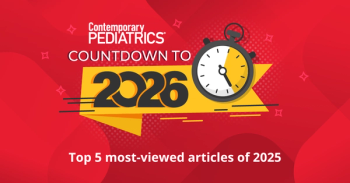
Study: Children exposed to COVID-19 pandemic behind 4 months in development at age 5
Children followed up with at 5 years of age that were exposed to the COVID-19 pandemic were 4.39 months behind in overall childhood development, whereas children followed up with at 3 years of age demonstrated positive associations.
At 5 years of age, children in Japan exposed to the COVID-19 pandemic were found to be 4.39 months behind in development compared to children that were not exposed, according to a study published in JAMA Pediatrics.
The pandemic disrupted several aspects of children’s lives and previous studies have shown evidence of impaired sleep quality, decreased physical activity, increased mental health issues, more screen time, and weight gain. Since it is still unclear how the pandemic impacted early childhood development, investigators studied children in Japan aged 1, 3, and 5 years. The cohort study, conducted in accredited nursey centers in Tokyo suburbs, involved a 2-year follow up. According to results from questionnaires filled out by parents at the included nursery centers, participating children missed 1.9 days of nursery attendance during the 4 government declared emergency periods from 2020 to 2021. Before the pandemic, children typically attended 5.1 days per week on average.
Annual censuses from 2017 to 2021 were studied and broken into 5 waves. Waves 1 to 3 were conducted before the pandemic and waves 4 and 5 were conducted during. Two sets of data, made up of children who took part in the baseline survey at 1 year and 3 years of age, were followed up at ages 3 and 5 years, respectively (groups 1-to-3 and 3-to-5). One comparison cohort and 2 exposed cohort made up each age group. The comparison cohort was not exposed to the pandemic. Those in the exposed cohorts were exposed at age 3 or 5 years. Developmental age was measured by the Kinder Infant Development Scale (KIDS), created using data of 6090 Japanese children. Questionnaires presented to parents asked if their child was capable of behaviors broken into 8 categories: manipulation, physical motor, receptive language, expressive language, social relationships with children, language concepts, social relationships with adults, and discipline. For children younger than 3 years, 142 items were on the questionnaire while 133 items were on questionnaires for children older than 3 years. In the study, 447 children— 201 girls (45.0%) and 246 boys (55.0%)—aged 1 year were followed up to age 3 years. Those aged 3 years at baseline and followed up at 5 years featured 440 children, comprised of 200 girls (45.5%) and 240 boys (54.5%).
In the 1-to-3-year age group, the exposed cohort revealed no negative association between overall development and the pandemic (coefficient, 1.32 [95% credible interval, –0.44-3.01]), but demonstrated a positive association in manipulation, physical motor, language concepts, and social relationships with children and adults. The 3-to-5 age group differed, as the exposed cohorts were 4.39 months behind the comparison cohorts in overall development at age 5 (coefficient, –4.39 [95% credible interval, –7.66 to –1.27]). Further, all subcategories revealed negative associations with the COVID-19 pandemic in this group.
At 3 years of age, the nursery center’s quality of care was positively associated with the child's overall development amid the pandemic (coefficient, 2.01 [95 % credible interval, 0.58-3.44]), but parental depression “appeared to amplify the negative association between the pandemic and overall development at age 5 years during the pandemic,” the authors wrote (coefficient of interaction, –2.62 [95% credible interval, –4.80 to –0.49; P = .009]).
Overall, results demonstrated delayed development at 5 years was associated with the COVID-19 pandemic, highlighting the importance of identifying children that have been “detrimentally affected by the pandemic and provide them with support for learning, socialization, physical and mental health, and family support,” the investigators concluded.
Reference:
Sato K, Fukai T, Fujisawa KK, Nakamuro M. Association between the COVID-19 pandemic and early childhood development. JAMA Pediatr. Published online July 10, 2023. doi:10.1001/jamapediatrics.2023.2096
Newsletter
Access practical, evidence-based guidance to support better care for our youngest patients. Join our email list for the latest clinical updates.




